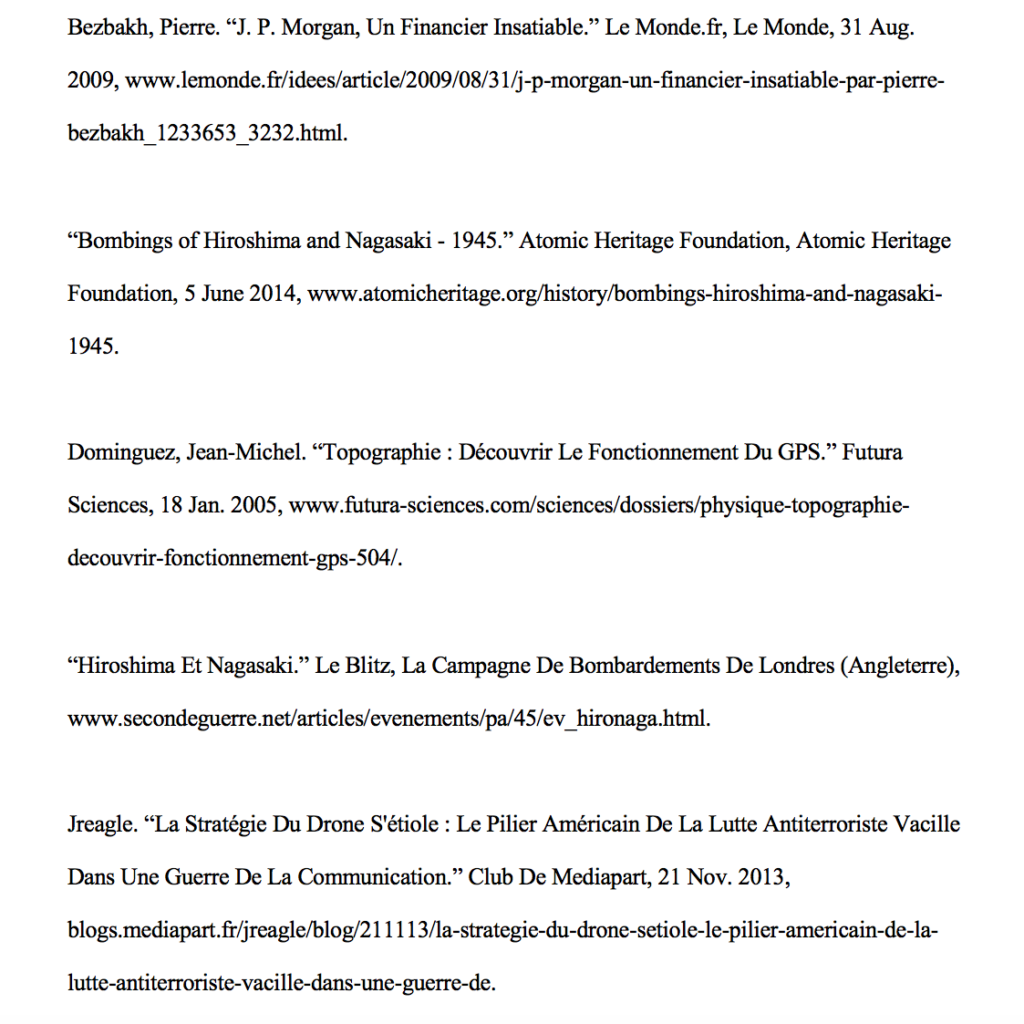As the simultaneously dreaded and much-awaited Dean’s Date comes around again, many of us find ourselves writing final research papers for our foreign language classes. Conducting research and writing a long paper in a language in which we are not fully fluent is both harder and very different from writing one in our native language. Personally, I have spent the past few days writing a paper for French 307 discussing the ethics of weapons development, a fairly technical subject which presented a number of challenges.
The first challenge was conducting the research in French. As a beginner in this area, I found it difficult to launch directly into Google.fr searches for exclusively French texts. I was lacking the relevant technical vocabulary for my subject, so I simply did not know what keywords to search and oftentimes could not entirely understand the papers I found. After floundering a bit, I found that the best way to go about the research was to alternate between French and English sources—initially, I might read an English source to get an idea of what I was looking for, and then I would search for a similar one in French. Reading the two in parallel allowed me to develop a better understanding of the French vocabulary required. As I built up my knowledge, I was able to use fewer and fewer English sources to guide me. While I still relied on English sources to give me ideas for what I wanted more in-depth information on (after all, there aren’t too many articles in French about US Department of Defense projects), I found myself using them just as a jumping-off point, rather than as a crutch to help me understand the French sources.

The next challenge was writing the actual paper. Most people in the early stages of learning a foreign language will simply write the paper in their native language and then translate it directly. However, as we reach proficiency, we tend to become more comfortable writing directly in the language. Nevertheless, this is no easy task, even if it produces better results than a direct translation. As such, it is very important to write a good outline—in either language—so that you have an organized plan for your writing. Then, it is a matter of slowly piecing together the general concept of what you want to say and the vocabulary and nuances of the foreign language that most accurately convey your message. It is important not to adhere too strictly to a certain phrasing you might have in your head, as this may not directly translate in the other language and will instead obscure the meaning you wish to convey. Rather, construct the message first, and then figure out, directly in the foreign language, how you can best describe it.
Writing a paper in another language is challenging, but ultimately extremely rewarding. It forces you to expand your vocabulary and comprehension in that language, and to think more creatively and flexibly about your own writing. It is an exercise that can improve your writing in your native language as well, as you learn to find more creative and subtle ways to express a message. The skills learned through this process can be very useful in the future—you never know when the perfect source for your topic might be in another language, and mastering the ability to find and comprehend foreign language sources now can help you tremendously in the future.
–Alexandra Koskosidis, Engineering Correspondent

